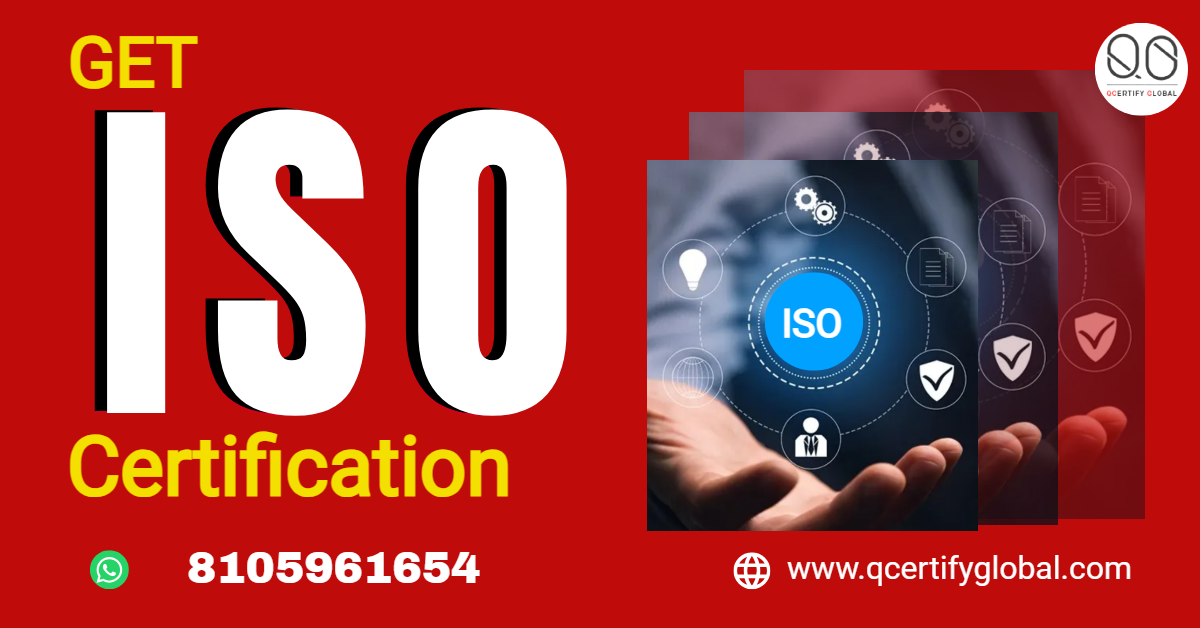HOW TO GET ISO CERTIFICATION
Add to favoritesRs0

ISO certification, awarded by the International Organization for Standardization (ISO), is a globally recognized testament to an organization's commitment to quality, efficiency, and continual improvement. The ISO develops and publishes international standards that encompass various aspects of business operations. This guide provides an overview of ISO certification and its significance for organizations.
Understanding ISO Standards:
ISO standards are sets of criteria and guidelines developed through a rigorous consensus-based process. They define the best practices and requirements for quality, safety, efficiency, interoperability, and more across various industries and sectors. These standards ensure that products, services, and processes meet certain predefined levels of quality and performance.
Importance of ISO Certification:
ISO certification offers several benefits to organizations, including:
a. Enhanced Credibility: ISO certification enhances an organization's credibility and reputation by showcasing compliance with internationally recognized standards.
b. Global Market Access: Many global markets require ISO certification for entry, providing organizations with increased market opportunities and international recognition.
c. Improved Efficiency: Implementing ISO standards often leads to streamlined processes, increased efficiency, reduced waste, and cost savings.
d. Enhanced Customer Satisfaction: Adhering to ISO standards helps in meeting customer expectations and ensuring high-quality products and services.
Common ISO Standards:
There are numerous ISO standards catering to various aspects of business operations, including:
a. ISO 9001: Quality Management System (QMS) standard focusing on quality and customer satisfaction.
b. ISO 14001: Environmental Management System (EMS) standard focusing on environmental performance and sustainability.
c. ISO 27001: Information Security Management System (ISMS) standard focusing on data security and protection.
d. ISO 45001: Occupational Health and Safety Management System (OHSMS) standard focusing on workplace health and safety.
e. ISO 50001: Energy Management System (EnMS) standard focusing on energy efficiency and conservation.
The ISO Certification Process:
The process to obtain ISO certification typically involves the following steps:
a. Preparation: Select the relevant ISO standard and understand its requirements.
b. Gap Analysis: Evaluate the current organizational processes and identify gaps in compliance with the chosen ISO standard.
c. Implementation: Establish the necessary systems and processes to align with the ISO standard.
d. Documentation and Training: Document processes and provide training to employees on the new systems.
e. Internal Audit: Conduct an internal audit to assess compliance and readiness for certification.
f. Certification Audit: Engage an accredited certification body for an external audit to assess compliance with the standard.
g. Certification Decision: The certification body makes a decision based on the audit results and issues the ISO certification if compliance is confirmed.
Maintaining ISO Certification:
To maintain ISO certification, organizations must regularly review and update their processes, conduct internal audits, and undergo periodic surveillance audits by the certification body.
Conclusion:
ISO certification is a crucial asset for organizations aiming to enhance quality, credibility, and efficiency. By embracing and aligning with ISO standards, organizations can elevate their operations, ensure customer satisfaction, and position themselves competitively in both local and global markets.




